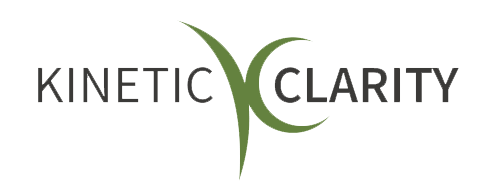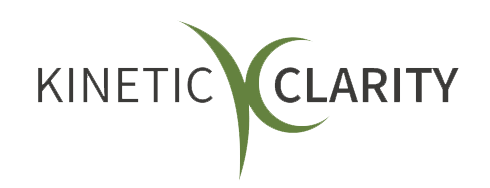Executive & Leadership Coaching: Leading Team Excellence
What is the difference between executive and leadership coaching?

When an organization is looking for a way to increase team performance, leadership is often the first place it looks. It makes sense to start at the top, right? However, other options are open for exploration, depending on your needs. One such option is leadership coaching.
Like executive coaching, leadership coaching is an important part of organizational success. It helps people learn to work together in a way that grows the entire team. In fact, the impact of leadership coaching can be felt throughout the entire organization.
In this article, I'll briefly talk about the difference between executive and leadership coaching. We'll also examine some surprising statistics about both types of coaching and their benefits for the organization. Finally, I'll share a few thoughts to keep in mind when deciding which is the best choice right now.
Ready? Off we pop!
Are leadership coaching and executive coaching the same thing?
Leadership coaching and executive coaching are similar but serve slightly different purposes and target audiences. Both are important. However, they cater to distinct facets of professional development. Knowing the nuances between them can help you understand their unique roles in coaching and leadership development.
Leadership Coaching
Leadership coaching can be applied across the organization. This coaching model improves communication, decision-making, and emotional intelligence. Improvement happens at all levels because the organization as a whole learns to guide its teams more effectively. In fact, research from Harvard Business Review shows a 44% boost in productivity from coaching.
Leadership coaching focuses on developing the leadership skills and capabilities of individuals across various levels within an organization. Team members and leaders develop a deeper self-awareness and an understanding of their influence. This helps promote a nurturing environment where creativity thrives.
The benefits of leadership coaching include:
Helps build and improve leadership skills.
I'm a firm believer that anyone willing to put in the work can learn to be a leader. It doesn't take a title; it takes learning how to communicate with others. Leadership coaching improves communication, decision-making, and emotional intelligence.
Applies to a wide range of individuals.
Coaching isn't limited to those in the highest positions. Anyone who takes on a leadership role for any length of time will benefit, regardless of their official title. It also applies to people being groomed for such positions.
Promotes personal growth.
Our ability to be good leaders is more than knowing how to delegate. We may have to learn new skills. We need to understand our impact on others, that we don't always have to be right, and that it's okay not to know. Effective coaching encourages self-awareness and self-reflection.
It enables you to have the uncomfortable conversations with yourself that you need to have if you're going to grow.
Executive Coaching
Executive coaching, on the other hand, is usually more focused on CEOs and senior executives within an organization. This coaching model helps executives navigate complex challenges and lead organizational change.
Although coaching may consist of "steps," the conversations that happen within those steps are fluid.
For example, if we were in a coaching session, you might ask me a question no one has asked before, sparking a unique conversation. It's a personal journey to understanding how to be a better leader. We would focus on a development program that aligns with your organization's strategic goals.
Its objectives include:
Developing strategic thinking and decision-making.
Executive coaching helps you uncover how to navigate complex organizational challenges. You also learn how to make decisions that align with long-term strategic goals.
As a partner in your best interests, an executive coach helps you identify your SWOT. (That's Strengths, Weaknesses, Opportunities, and Threats).
Why is this important? Once you know where you are, you can better understand the decisions needed to get where you want to be. A SWOT analysis is your road map to "x" marks the spot.
Understanding your leadership and organizational impact.
Improving your leadership style means knowing your impact on others. You learn how to guide your team better, drive change, and shape the work culture. While executive coaching also helps you grow personally, it focuses more on how your growth helps the whole organization.
Key Differences
The key differences between the two are their target audience, scope, and organizational impact:
Target Audience
Leadership coaching can be applied to anyone in a leadership position. Executive coaching is more focused on senior-level executives.
Scope of Coaching
Leadership coaching often helps you build core leadership skills for a wide range of situations. Executive coaching, while also covering these areas, tends to examine strategic decision-making and organizational dynamics more deeply.
Organizational Impact
Both types of coaching aim to improve organizational success. However, executive coaching focuses on the organizational impact you have because of your position.
Leadership and executive coaching complement each other. They play a crucial role in building a robust leadership pipeline. When current and future leaders are able to navigate the challenges of their roles effectively, the organization thrives.
Which one should I choose to improve organizational performance?
Deciding between leadership and executive coaching depends on your company's immediate needs and long-term goals. Executive coaching gives senior leaders a strategic edge. Leadership coaching develops leadership skills across the organization. A growing organization needs both for resilience, adaptability, and innovation.
So which should you choose? The choice often depends on your specific needs, structure, and goals. Here’s how each can impact organizational performance:
Executive Coaching
Executive coaching is particularly effective in the following scenarios:
Having a strategic impact:
As an executive, you have a powerful impact on culture, strategy, and direction. Improving their skills can result in better decision-making, clearer strategic direction, and more effective leadership. This skill growth directly affects organizational performance in a positive way.
Helping Manage Change:
Is your company going through major changes or facing serious challenges? Executive coaching can help you navigate these changes and challenges effectively. When leadership knows how to manage change well, the business is more agile and adaptable.
Influencing Company Culture:
Executives help define the company's values, practices, and norms. Executive coaching gives you an understanding of how to be an example of the qualities you want to see in your organization.
Leadership Coaching
Leadership coaching is useful for many things and helps keep an organization strong by:
Building Future Leaders:
It prepares people at different levels to be ready to take on important jobs, making sure there's always someone skilled to step in.
Boosting Team Work:
It helps leaders better guide, inspire, and connect with their teams. This improves teamwork, helps everyone get along, and makes everyone feel happier at work.
Creating a Learning Culture:
It encourages a workplace where everyone keeps learning and growing, making the whole organization keep getting better.
Considerations for Organizational Performance
Choosing between executive and leadership coaching depends on what your organization needs and aims for. A mix of both can really boost how well your organization does. Here's why combining them works best:
- Executive Coaching is great for big-picture planning and bringing change.
- Leadership Coaching helps grow a team of skilled leaders for strong future leadership.
Your Organization's Main Challenges:
If the big issues are about strategy or changing the organization's culture, executive coaching might be the key.
If building a strong team of leaders and improving how teams work together is the goal, leadership coaching is the way to go.
Investing Resources:
- Executive coaching focuses on the top leaders and may need more specific spending.
- Leadership coaching is for more people and might require a bigger overall investment, but it is great for the long haul.
Looking at Now vs. The Future:
- Executive coaching can quickly affect the organization's direction and culture.
- Leadership coaching is more about making sure your organization stays strong and performs well over time.
Wrapping It Up
In conclusion, improving team performance through leadership begins at the top, but it doesn't end there. Leadership coaching and executive coaching offer unique avenues for growth, each important to an organization's success. Through these coaching processes, individuals at all levels can develop the skills and understanding necessary for impactful leadership. Whether it's improving communication, fostering innovation, or guiding strategic change, the benefits of coaching are far-reaching.
As we've explored, the choice between leadership and executive coaching depends on specific organizational needs and goals. A balanced approach, integrating both, ensures comprehensive development across the spectrum of leadership roles. This strategy not only prepares organizations for current challenges but also equips them for future success, making coaching an invaluable tool in the pursuit of excellence.












